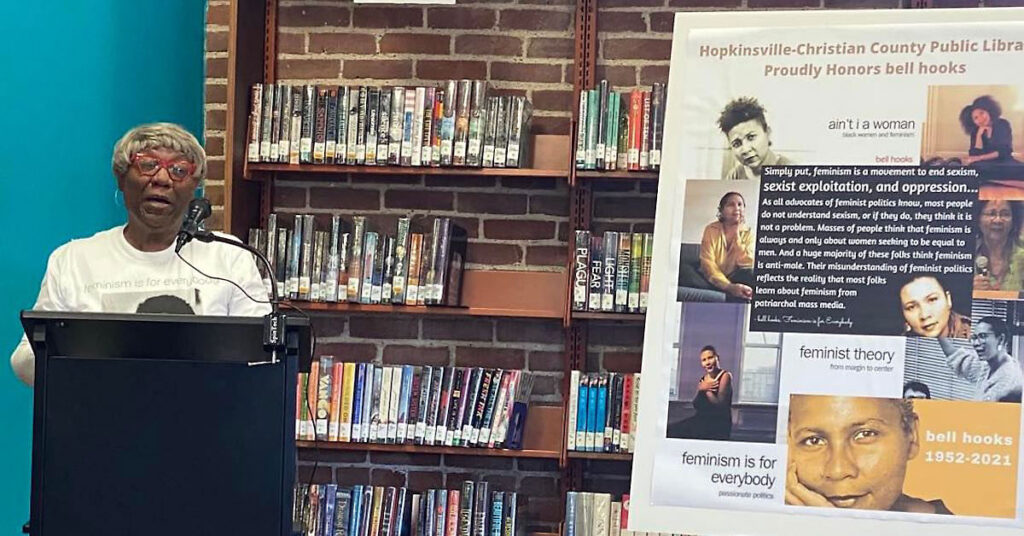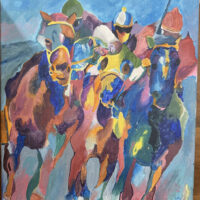bell hooks, born Gloria Jean Watkins in Hopkinsville, Kentucky, was a scholar, activist, author, and feminist. hooks died on December 15, 2021, in Berea, Kentucky. Her younger sister, Gwenda Motley, speaks with Tracy Ross about her late sister.
Motley says that the community in which her sister was raised played a significant role in her academic and personal development. “It was through that community of African American teachers and principals and the church that she grew. In the ’60s, we were segregated. Even after integration, there were still teachers who recognized she was very intelligent.”

“I would say that we all had a very good education,” Motley continues. “When you have parents who support your wanting to succeed and wanting to be educated, our home was rich with literature. We had books, we had magazines. We were taught to read and always enjoy learning. She, of course, really took that to heart. She really enjoyed learning.”
- RELATED: ‘To me, she’s Gloria Jean’
- WATCH: Gwenda Motley reading two of her sister’s children’s books
Though her sister achieved great things and gained international acclaim, bell hooks was always Gloria Watkins to her family. Motley recalls her first time attending one of her public engagements. When asked if she was bell’s sister, Motley said no. “That’s when it was like, ‘oh my gosh, this is more than I thought it was.’ I never thought of it like that. As the years passed on and she became more famous and connected, she was still Gloria to us.”
After hook’s passing in December 2021, the family was overwhelmed by the international response. “We were getting responses from all over the world about our sister. In writing the press release, that was the main thing I thought of. The world is saddened and mourned at the passing of bell hooks. On behalf of the family, we’re saddened because we’ve lost another sister.”
Motley says that one of the most consistent responses the family has received about hooks was the author’s ability to genuinely relate to others. “She always treated you like a regular person. She lived modestly. Even though she acquired wealth and fame, she still lived very modestly. She still liked that hometown, that small-town feeling, and she lived that out through her life.”
“If she was talking to the President of the United States, she’d be fine. If she was talking to the farmer next door, she’d be the same. She could talk to anyone and relate. So, many people responded with, ‘I met her, and she just embraced me, or she just talked to me.’ If she’s talking to you, she’s all in.”
“It was never about lifting up herself. It was about engaging and giving voice and talking to and having a discussion and conversation with this person,” Motley continues. “She had that ability even she was giving a talk. She could be personal with thousands of people in the room. If one person asks a question, she had the ability to draw and pinpoint into that person.”
“She had a brilliant mind. Just a brilliant mind,” Motley concludes.
(Editor’s note: Gwenda Motley serves on the Hoptown Chronicle Board of Directors.)






